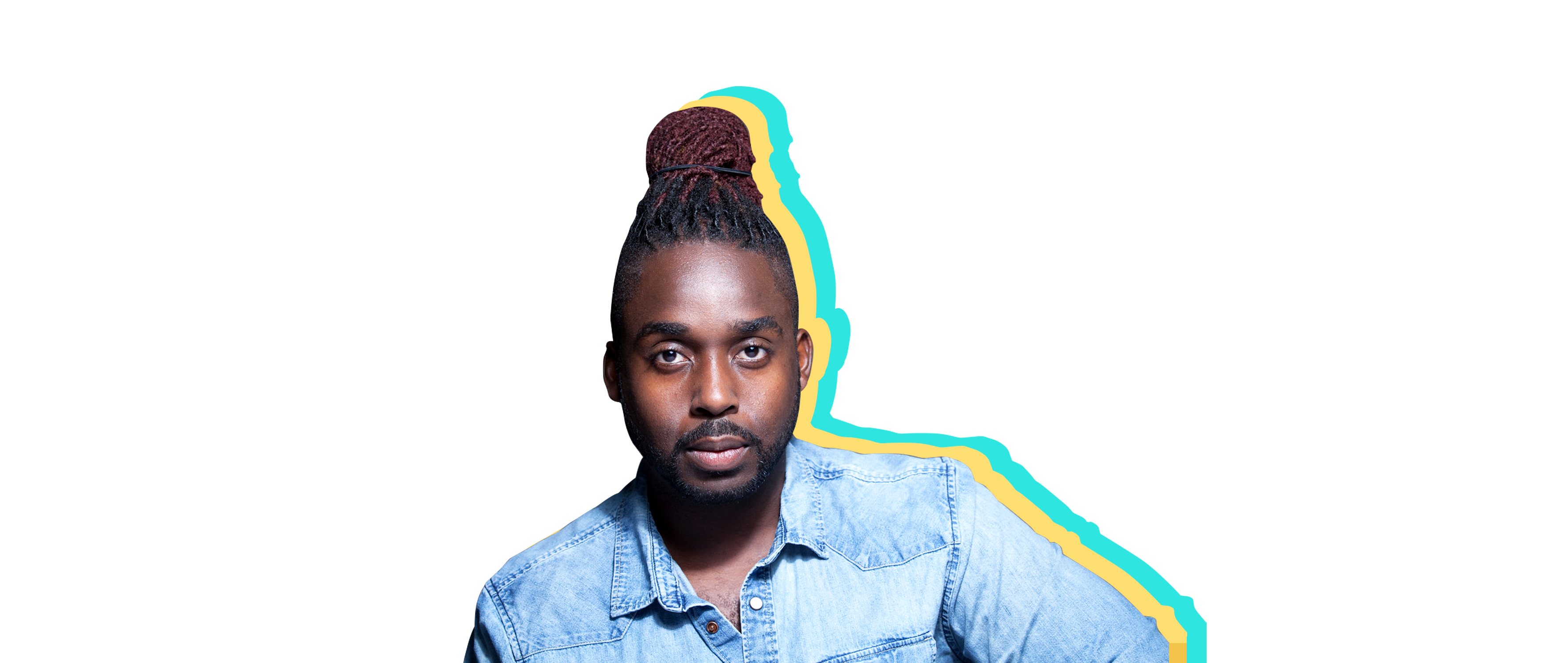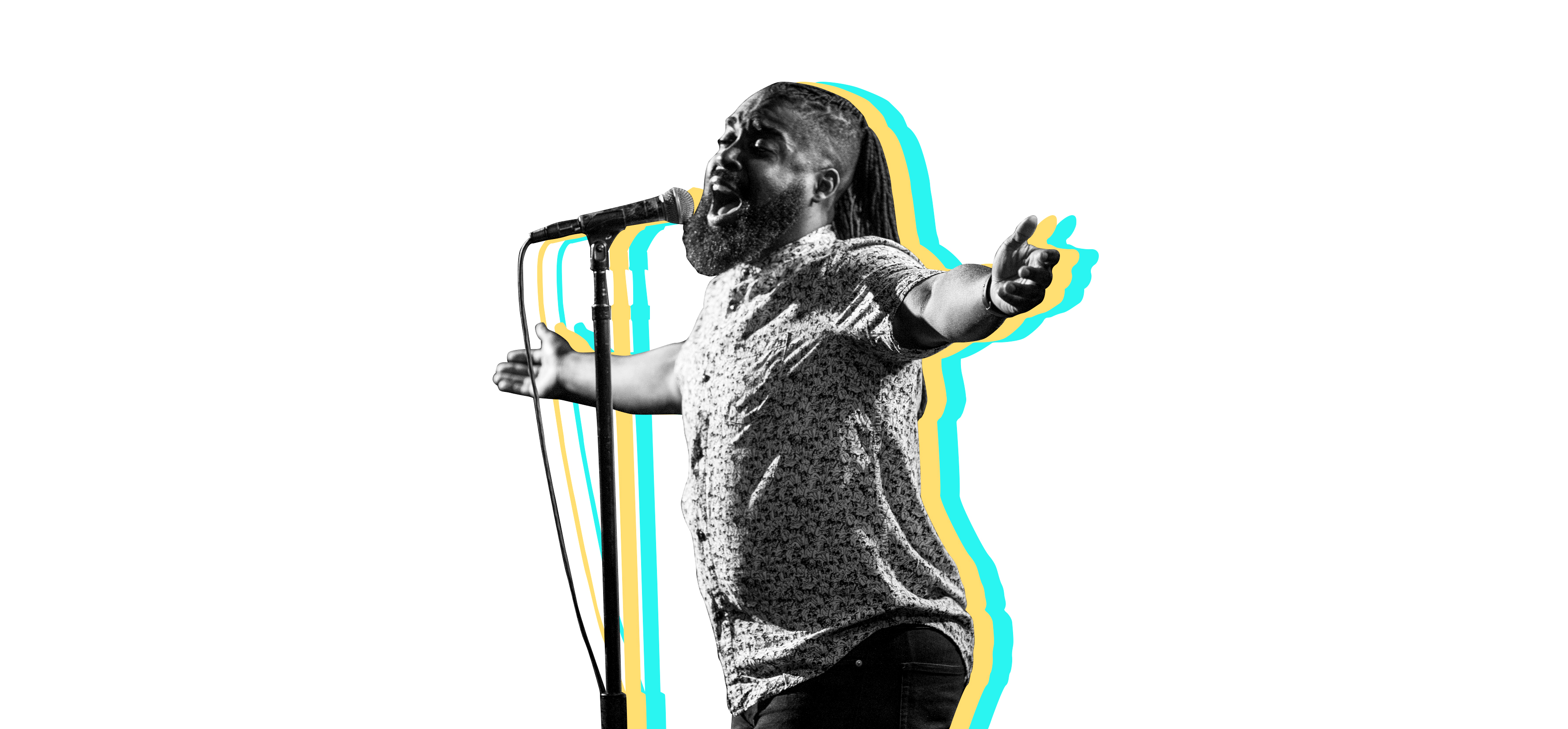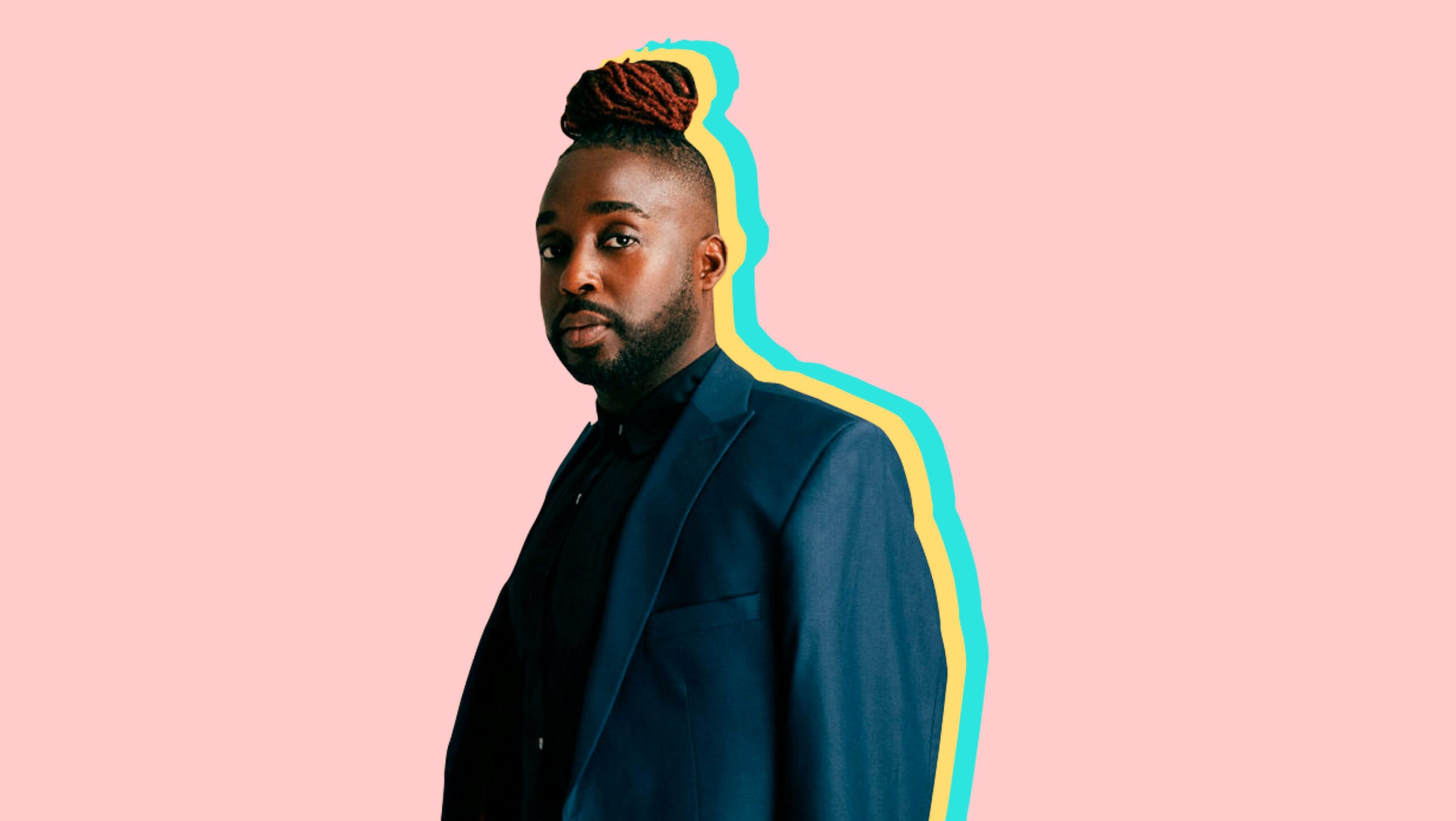Some musicians sing from inspiration, others from experience. Then there are those who marry the two and take listeners on a journey to places they never thought they could go. Mykal Kilgore is one of those artists.
Kilgore, a singer, songwriter and a recent National Association for the Advancement of Colored People (NAACP) Image Award nominee has mastered the ability to craft an entire narrative by simply singing a note. His voice reflects his deep roots in gospel music, centres his love of R&B and conveys the struggles of existing at the intersections of being both Black and queer.
We spoke with Kilgore about what it means to use his craft to not only share, but also to own, his story.
What does it feel like to be nominated for the NAACP Image Award?
It feels incredible! I am so happy not only to just be appreciated for the music and the art that I’m doing, but that my community is appreciating it as well. It was really important to me that the album, “A Man Born Black,” tells the story of myself and my life—and the integral part of that is that I am Black.
I think it’s important to mention that I am gay and living in America. Those two factors are not all that I am, but they are such a huge part of how I’ve been received, how people interact with me, how I move throughout the world. And producing art that reflects that—that’s getting any kind of praise—makes me feel so so so good.
Where were you when the nomination was announced?
I was in therapy and my phone just kept going off. My therapist was like, “You can answer it, you know?” but I didn’t want to be distracted. When I answered it, it was my manager. He went, “Congratulations, we got it.” He’s like, “Outstanding new artist.” I didn’t even know who else was nominated.
Thank God I wasn’t watching it live because I was the last name to be included. That moment was pretty much perfect. Marsai Martin announced my name and she said it with so much character. I am just so glad I wasn’t watching because my heart would have probably just exploded from anticipation. But honestly, it was perfect.

What does it feel like to be nominated alongside artists like Lizzo and Lil Nas X?
The best way I can describe it is that I have a lot of teens in my life now, teens and pre-teens, and they’re like, “You’re in the same category as Lizzo and Lil Nas X.” I feel validated, you know—like I’m a real artist now. Before, I was just singing some songs. Now, I’m on the same stage as these people who have huge machines behind them.
I’ve had so many vital moments in my career from The Wiz Live! to doing Postmodern Jukebox. But getting nominated for this award changes everything because I’m nominated for being myself. It’s so validating to me in a way that I didn’t even realize I needed. It’s someone saying you’re doing your best as yourself, as honestly as you can be. That’s huge.
We heard you were mentored by Billy Porter. What was that like?
There is no one like him on Earth. Billy Porter is special in the way that he truly embraces his mothering and fathering sides. He definitely has mothered me and fathered me and he inspires me all the time to be so authentic and so true. He’s kind of the epitome of “being your true self.”
He pulls no punches and I feel like he’s as honest as he could possibly be. He takes it a step forward and goes even deeper into his truth. He has been so integral in my maturation.
We did theatre together—it was one of my first theatre productions and he was the reason why I moved to New York. He literally told me, “You need to move.” I said I didn’t feel ready. He said, “You sound stupid.”
I owe so much of my career to him. But I think, more than anything—more than any kind of advice he’s ever given me—it’s watching him be his authentic self that has inspired me. He reminds me that I can do this. We talk often and he called me after the album launch. He said, “I’m so proud of you.” And of course, at that point, I was a puddle of tears. I’m smiling like the Cheshire Cat right now because just thinking about it makes me so damn happy.

Your album, A Man Born Black, tackles several issues related to being a Black man in America. Why is it important to celebrate your identity through your music?
I don’t think that I can separate the things that make me who I am from the art. It is important that you take my Blackness, my queerness, my nationality with the art. I think a lot of the time—especially for Black folks—people want the art, but they don’t want to deal with us. I wanted to make sure that it was kind of inextricably linked. If you want this art, you gotta take me with it.
We live in a culture where everyone loves gay speak and everyone loves Black culture. Sometimes it feels painful to actually be in those communities and realize that people have taken our culture and turned it mainstream but don’t really want to deal with us. I often think, “People are enjoying me and not celebrating me. They may be tolerating me.” So I thought that if I ever get an opportunity to [make music], I would do it in a way where people would have no other choice but to celebrate me if they engaged in my art.
What’s the story behind the song “Let Me Go”?
Almost every relationship I’ve ever been in is in that song. Every single one.
I think it’s a song that evolves as I sing it. It’s not just my romantic relationships—it’s the relationship I have with myself. My father and I had a very intense conversation about the song because he said, “I feel like you wrote this about me” and I was like, “Maybe it is.” But in reality, I really was writing it about myself.
You know, I mention little Mykal a lot when I talk to my audiences or when I’m talking to people about the art because little Mykal is related to the success of this. This is the stuff that 8-year-old or 12-year-old or 16-year-old Mykal dreamed of. But I’ve also had to really reconcile the experience of little Mykal and some of the hurt he felt being raised Southern Baptist and growing up gay in that world.
“I think it’s a song that evolves as I sing it. It’s not just my romantic relationships—it’s the relationship I have with myself.”
So “Let Me Go” was about letting go of the chokehold that little Mykal had on adult Mykal’s life. By saying, “Okay, it’s time to release yourself from that, to move on to something bigger and something better, because letting go is the first step to growth.” I wanted to go higher. I wanted to evolve, and that song is a constant reminder every time I sing it—it’s a reminder of where I’ve been, but also where I need to go.
I know you’re on tour now and you’ve posted online that “It’s not just a show, but a choir rehearsal.” What can fans expect to see?
Well, first of all, I have an expectation that every audience comes to a show to be a part of the show. I think every audience has a responsibility. Sure, it’s my job to entertain them. But I take it a step further. I think it’s my job to educate them—to educate and entertain.
“I think a lot of the time—especially for Black folks—people want the art, but they don’t want to deal with us. I wanted to make sure that it was kind of inextricably linked.”
The receiving of my performance is active. You know, when you are listening to music or watching a show, it is active, especially for us Black folks. So I expect them to come to a show and treat it as a choir rehearsal. If I put that microphone up for you to sing back or I ask you a question—I want you to respond. I want to know you’re there. Your energy: It boosts me.
I promise you, it makes a better show if you are in it to win it with me. I want people to leave my show with the idea that we should be present with one another. We should be able to look at each other and see the thing in each other that is special, sacred and important.
What’s next for you?
Right now, all I can say is that I feel like I’m on the part of the roller coaster ride where I’m just going up and up and up and up. I can’t even see the top of the crest of the coaster because, for the foreseeable future, the ride seems to just be going up.
Every day I wake up with a level of excitement that I haven’t felt since my childhood at Christmas. The excitement and support I’ve received for this album, the Image Award nomination—I’m really looking forward to 2020 and beyond because, as my manager says, “We’re not going anywhere.”
That stays cemented in my mind. I don’t feel like this is a short moment that’s just going to go away. This album was really just the beginning of what I think is going to be a very long, lovely and luxurious career where I get to do something that I’ve dreamed about doing since I was a baby.
I’m here to stay.
What would you tell your teenage self?
Whew. That is a question I should be really ready for. But I feel like I’m never ready to answer it. What I would tell my teenage self is: Protect your joy. Protect it at all costs. Don’t wait till it’s depleted to try to get it back. Don’t let people come in and try to steal it—cover yourself with love and light.
The NAACP Image Awards will take place on February 21-22, with a live broadcast on BET on February 22.


 Why you can trust Xtra
Why you can trust Xtra


